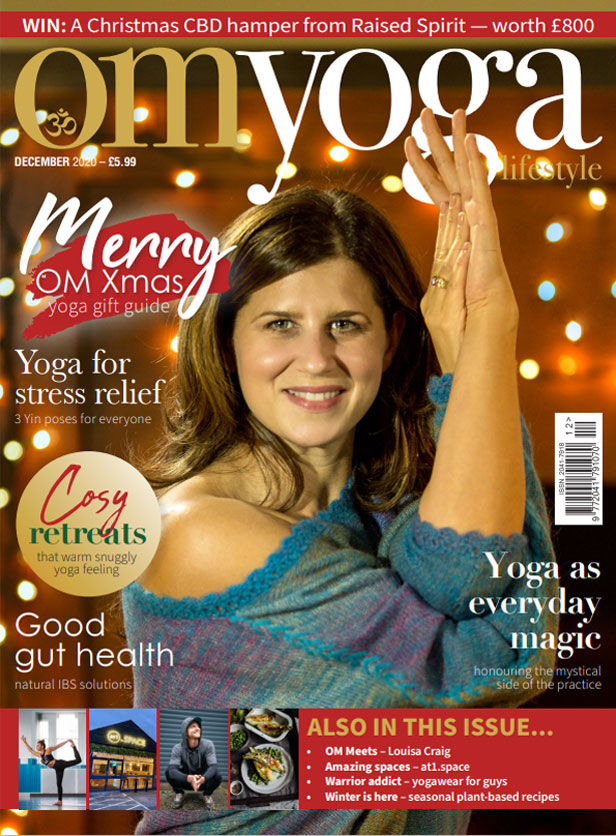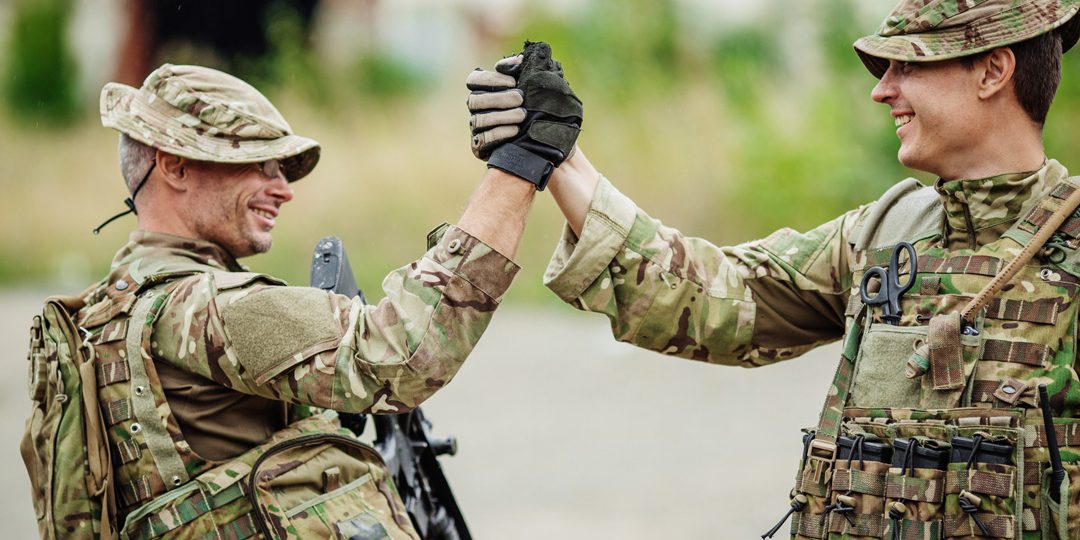
From the Marines to the mat
From the Marines to the mat: yoga teacher Ian Hadden tells OM how the practice has transformed his life and helped him overcome both physical and mental health challenges
After a career in the UK armed forces as a Royal Marines Commando, and then as a serving police officer, Ian Hadden has faced his fair share of life’s challenges.
Now, he’s found a new pathway with yoga. Now a yoga teacher working in Scotland, he says the ancient practice has given him the tools to cope with key challenges including a battle with mental health issues from his time in the military.
Following his own treatment for Post Traumatic Stress Disorder (PTSD), his passion nowadays is to guide those who may require a more mindful approach, offering trauma-sensitive practices to anyone who may wish to try yoga and benefit from its amazing and healing properties.
Coming from a heavily physical background in sport and military training, he also draws on his experiences as a personal trainer and ultra athlete to adapt his practice in order to make it appropriate to those with structural and physical considerations.
Combining breathing, meditation and a quiet, strong physical practice, he offers students a considerate yet powerful Hatha Yoga to awaken the yogi that lies within us all. Here, he tells OM how he found the yogi path:
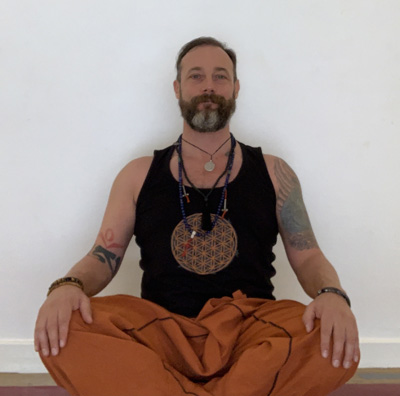
20-year journey to the start line
“I was a British Royal Marines Commando and then a police officer — and that’s where the last straw broke the camels back.
In 2003, I was diagnosed with Post Traumatic Stress Disorder (PTSD). I was hyper vigilant, experienced sleep problems, and was completely unable to maintain any type of relationship.
Due to my background I had trained hard my whole life: I ultra ran up to 100 miles, I tried Cross Fit, triathlons and long distance swimming. I became obsessive in pushing myself further and harder.
A fairly routine visit to a doctor flagged up that I wasn’t really doing myself any favours, however, and he suggested I might like to think about finding something to complement this training. And so, after a year of procrastination, I stepped into my first Vinyasa Flow class at my local studio.
I had no idea if this new environment would trigger my mental health problems or how it might affect me. Would they judge me for being an older guy with injuries, who couldn’t touch his toes because of the surgery to fix his legs? That guy that sometimes stutters and can’t find the right words? That guy that starts to panic if things don’t start right on time or if someone is late?
It turns out I had turned up to the week’s hardest class and so I loved it. It was horrible: 90 minutes in a hot yoga studio unable to do what everyone else around me was doing. It was extremely challenging physically.
Yoga was the next thing I was going to conquer! I was going to be that guy who would finish yoga, because that’s how it works right?
Learning the ropes
At the end of my first class the teacher approached me and kindly suggested that I might like to try some of the other classes the studio offered. I didn’t hear what she was really saying because I didn’t want to and went head first into attending as many classes as possible in those first few months.
I always wanted the hottest spot in the studio and I would look around at what everyone else was doing and what they could achieve.
Then I started to speak to people a little more. Then I began to hang out with some of the other yogis. Then I started to ask some of the teachers what I could read and the same answers came back every time.
They didn’t say read this book on how to do this asana or mastering that asana, they just said read the Bhagavad Gita, or look at the Yamas and Niyamas.
Then it happened. Because of my injuries I was unable to sit cross legged for any length of time and the teacher looked at me, smiled, and said: “Ian, sit on a block if it’s uncomfortable.”
The teacher explained to me that she used blocks in her own practice and that she looked after herself. She respected her body, she accepted exactly where she was on that day and in that particular moment.
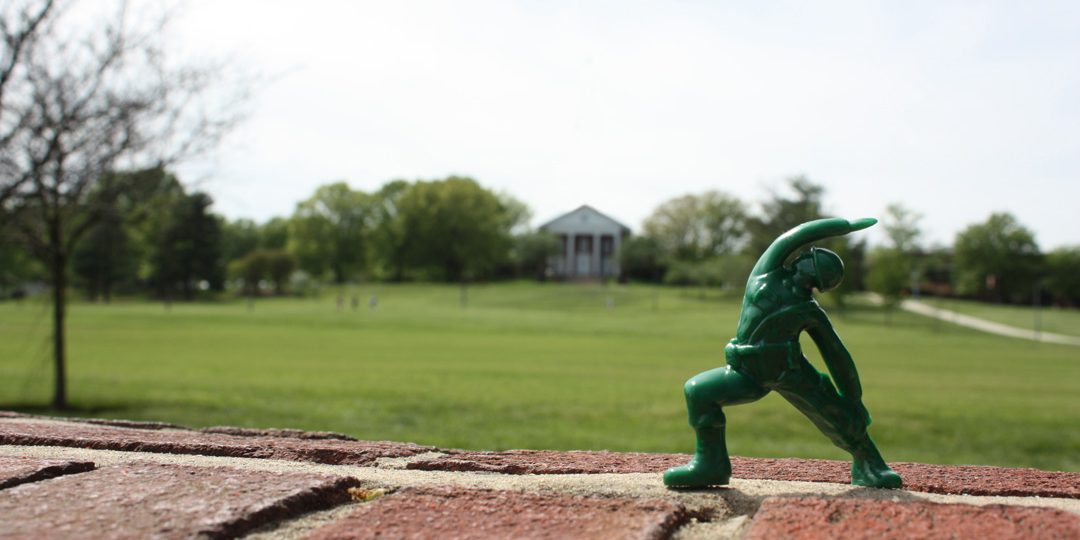
Qualified yoga teacher
So, fast forward to a man who came into yoga to ‘beat’ it, what’s changed since?
I was lucky enough to attend my 200-hour teacher training with Bryony Giboin in Athens, Greece. She helped me to understand that I am structurally never going to be able to sit in lotus — and that’s okay.
Meditation, pranayama and a silent strong practice are my new foundations. I understand that when I am studying or reading, that’s yoga. When I am kind to a stranger, that’s yoga too. When I don’t compare myself to others in a studio, that’s also yoga.
I am becoming content with what I have and who I have become and I am starting to understand — that’s my yoga. Yoga for me is my everyday now and it has become a huge part of my coping mechanism in helping with my ongoing mental heath battles.
I have been told that I will suffer from PTSD for the rest of my life to some extent but I know that yoga is not going anywhere so now, when I feel the anxiety building, the panic or sometimes the sadness, I know where to go.
I have met some truly wonderful people and started to make new friends again. Do I still struggle? Yeah, all the time. Yoga is not going to fix my mental heath challenges, but it gives me lots of tools to cope.
I’m just an old broken Marine that loves a bit of yoga. But now I have a new passion: helping others see what has been made so clear to me by so many wonderful people.”
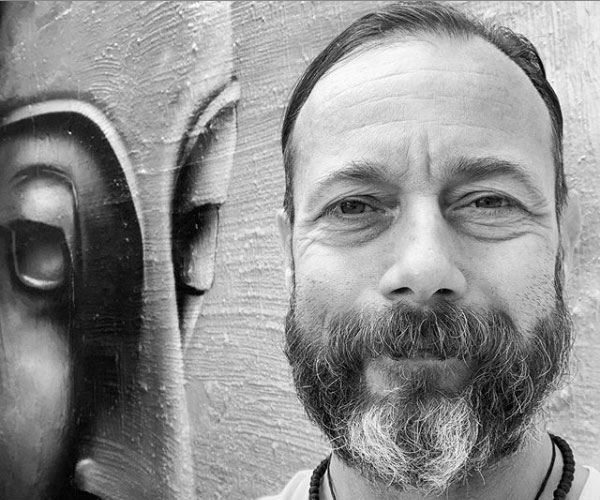
Ian Hadden teaches at Nomad Yoga Dundee (nomadyogadundee.com). Find him on social media @ianhaddenyoga



